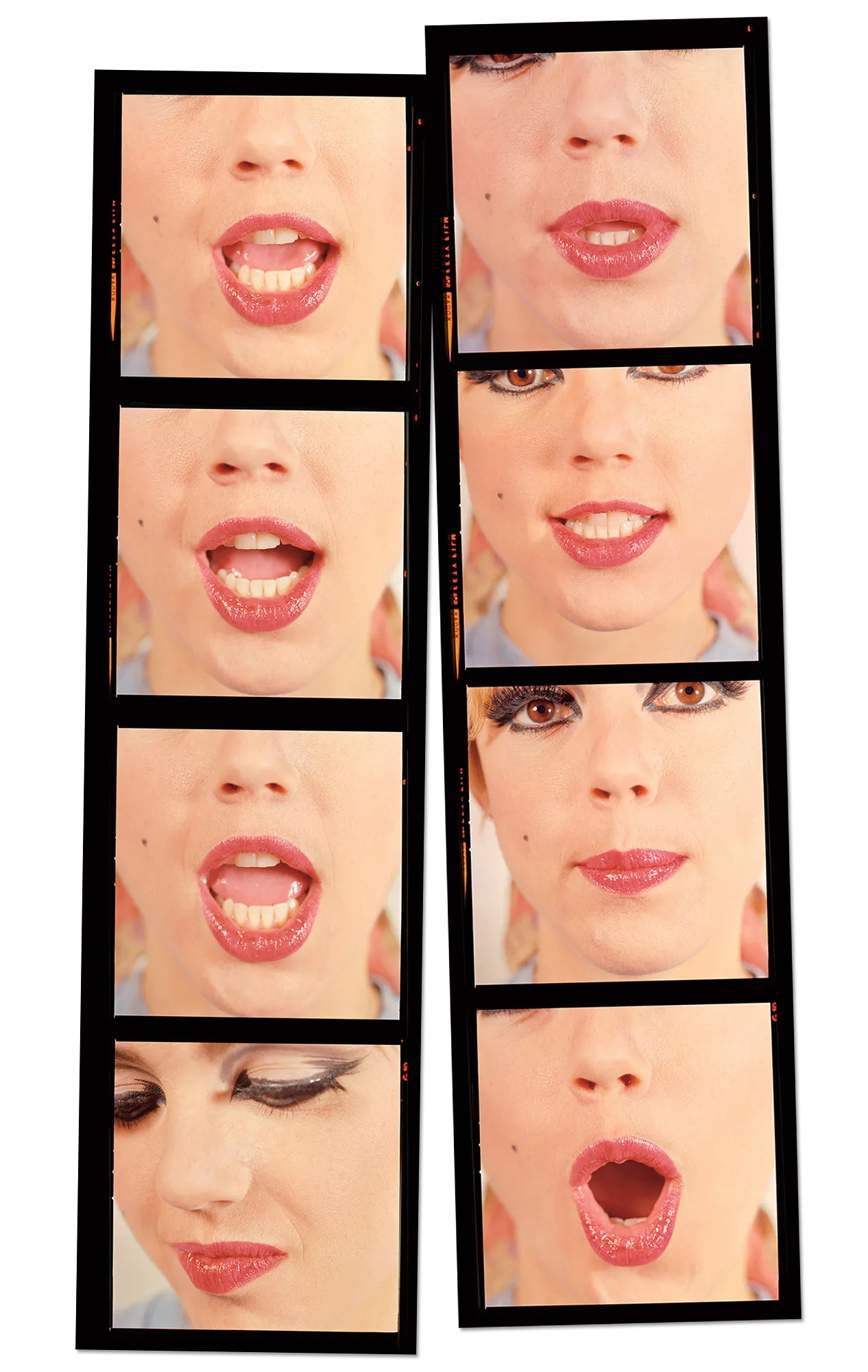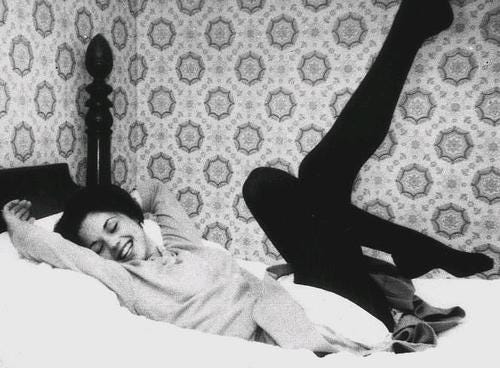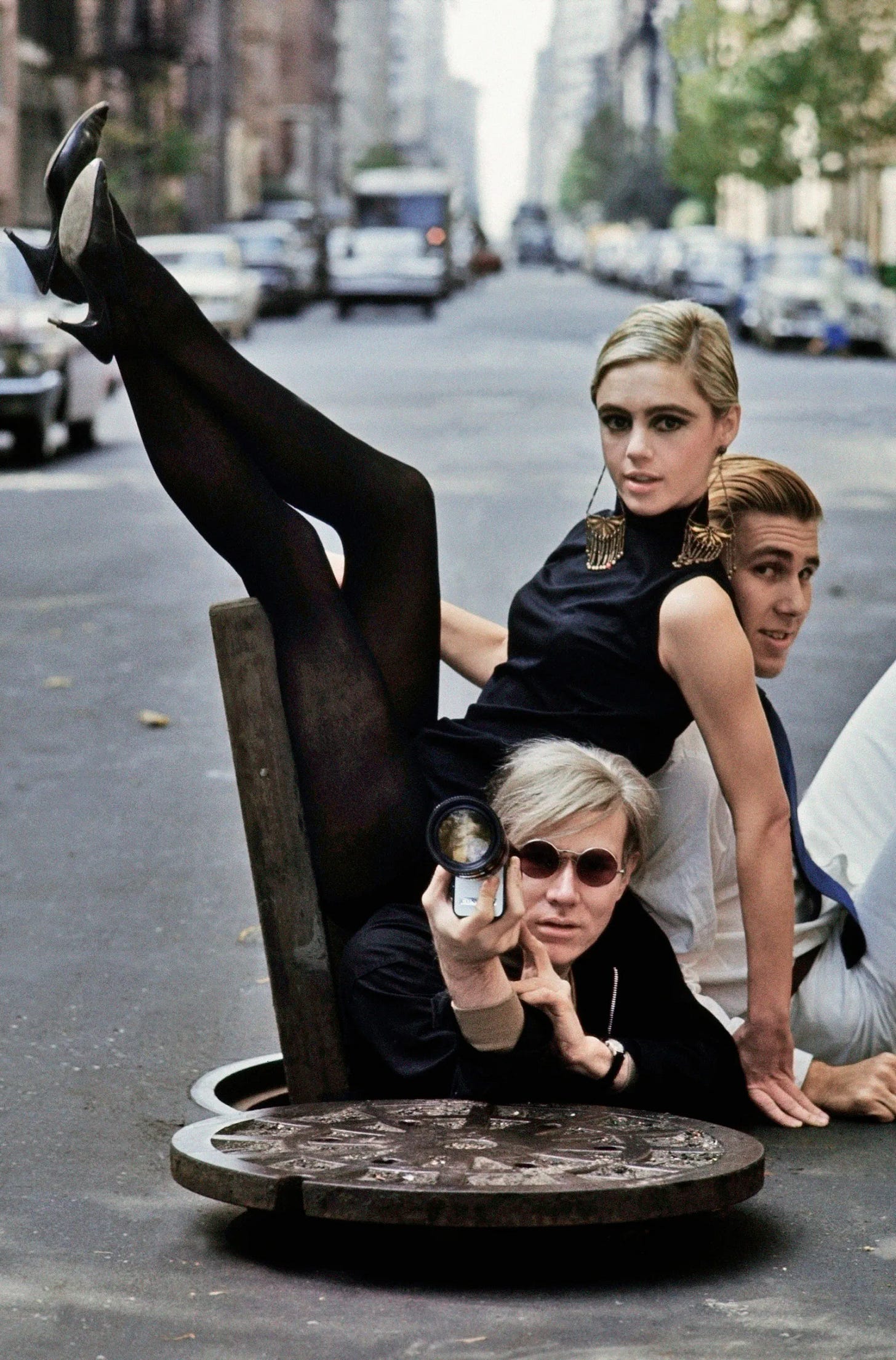An important part of my identity is that I adore Edie Sedgwick. I was first made aware of her around the formative age of fourteen or fifteen, and enquired about her to my mother. Before I even knew anything about her life, I was taken by pictures of her in leopard print, her black bodysuit, tights, wearing eyeliner. I watched the unfortunate Sienna Miller biopic (which I still loved and return to for comfort), and ordered her oral history biography written by Jean Stein, Edie: American Girl. I was immediately fascinated by Edie, and the testimonies from the biography seemed to deepen and confirm my infatuation. Was it her tragic upbringing? Her tragic death? Or her infectious charisma? Her impossible style? Or all of the above? Either way, people agreed that there was something special and complex about her. Edie’s story disturbed me, I had never read anything like it before. Page after page, the information was shocking to me and I consumed it without moderation! Something made me feel as though I knew her, and loved her despite her flaws.
In fact, a couple of my deepest friendships arose out of a mutual love for Edie Sedgwick, the realisations of our shared love for Edie, I think, mutually confirmed our fated compatibilities as life long friends. To not know Edie is a shame, but to dismiss her as a socialite, is a crime! And to find someone who adores Edie is to find an ally!
So when I found out that her older sister, Alice recently wrote book about her, I simply had to read it! I threw myself into it so fast that I didn’t immediately realise which sibling Alice was. Though it didn’t take me many pages to realise that Alice, was referred to as her childhood nickname, ‘Saucie’ in Jean Stein’s book. Within pages, it clicked that it wouldn’t be a flattering portrayal. Alice had made it very clear in the past that she disliked and did not respect Edie. In fact, they weren’t on speaking terms for many years. Now almost twenty years since Jean Stein’s Edie: American Girl came out, and past her testimonies allegedly weighing on her consciousness, Alice wrote As It Turns Out, to go back on some of the things she said to Jean Stein, both about Edie and Andy Warhol.
Theodore Sedgwick, Edie’s great grandfather was a political ally of Alexander Hamilton and George Washington, he then became Speaker of the House of Representatives. Most Sedgwick men went to Harvard and were heavily expected to succeed there. The Sedgwick’s were old money and terrible snobs. They also had a lineage of mental illness. Edie was the last child of eight, despite her parents being so unwell that they were advised not to procreate at all.
It was certainly a gamble to so blatantly go against the doctor’s advice, and Edie’s father, Francis’ health issues turned out to be very consequent for his children. The children were generally all in bad health: colds and measles would constantly bounce back and forth between the kids, and Alice recalls that growing up there always being a doctor and nurses at home. Some of the children had scarlet fever, others had to be watched for their heart condition. One sibling, Bobby, would rock in his bed and bang his head on the wall. But most of all, Francis was violent with his children and sexually molested the girls (Stein 105). A childhood friend of Edie’s recalled the time when Edie would tell her about her father: “She loved telling me how her father would come after her and lock her up and force her to stay in bed – a helpless, isolated prisoner, a drugged princess. She dramatized these incidents in a way that made me think she’d be reading nineteenth-century Gothic novels. But since she rarely read, I think these things were really going on” (Stein 105).
Alice starts her book by voicing her astonishment at her little sister’s persistent legacy today, as though she were blind to the magnitude of Edie’s lasting influence. Alice confesses that a Vogue birthday tribute to Edie made her realise she had gotten Edie’s date of birth wrong all these years. Most of the book is filled with similar strange pieces of information, and I cannot tell whether she is priding herself on not knowing about Edie, or if she is pretending to. The whole book seems like a petty attempt to minimise Edie, and debunk any admiration towards her. The book is full of backhanded observations dismissing any thing that can be attributed to Edie, or the terrible things that have happened to her. Shockingly, Alice dismisses that Fuzzy ever molested Edie (Sedgwick Wohl 81).
Alice goes back to the beginning, from her family lineage to her class conscious upbringing, her childhood home in Long Island, and her family’s move to Santa Barbara. By the time Edie was born, the family had moved to Santa Barbara and her parents seemed to have gotten less strict. While all other children were put to work at the house when they were young, and then sent to boarding school, Edie had it easier. Alice stresses in the book (and a never ending tangent during the conference I attended) how Edie had not gone through anything in her childhood, which made her incapable to go out into the real world.
Edie was briefly sent to boarding school where her lifelong struggle with anorexia and bulimia developed. When Edie was suddenly taken out of school in 1956, many rumours were circulating. Some said she had mononucleosis, and Edie’s mother told the other children she was getting leukemia when in fact the reason for her being sent home was anorexia. Still, being sent home didn’t do much for her recovery, and Alice seems resentful that Edie was taken out of boarding school, when the other had survived it just fine. Generally, it seems Alice is resentful that Edie always got her way and could never stick anything out. In the book, Alice makes uncalled for remarks about bulimia being disgusting, which is one instance among many, where Alice fails to show grace or sympathy towards Edie’s struggles.
In the fall of 1962, Edie was committed to a private psychiatric hospital in Connecticut called Silver Hill Hospital, the same hospital to which her brother Minty was sent for his numerous breakdowns and suicide attempts. Silver Hill, as it turned out, was somewhat like a country club, the furniture was fine and everyone had a private room. A patient even went so far as to describing the place as being “quite ritzy.” Edie prided herself on the fact that that she was the only person at Silver Hill they could never figure out what was wrong with. She always felt she could outthink them. Though, Edie never admitted her eating disorder, claiming she wasn’t ill, and that the only reason for her being there was because her father wanted to get rid of her.
When Edie turned 21 years old, and came into the money of her own, she decided to leave Cambridge and moved to New York, seeking a more glamourous life. Her stick figure, chopped hair and dark eyes made her a perfect fit to the New-York style of the early Sixties. Her look was praised by editors such as Diana Vreeland, and when asked about her, Patti Smith said: “I thought Edie was great. I even had a crush. I wasn’t into girls or anything but I had a real crush on her” (Stein 254).
According to Jean Stein, Edie and Warhol's relationship was immediate from the moment they met. She was suddenly the Factory’s superstar and on occasion the two even dressed alike; in striped boat shorts and silver hair. Edie took Warhol out to all her social events and turned him to the public eye. A source from the Factory said that “Andy was a terrific snob. He was a fashion creature and he absorbed a lot of the snobbish values of the fashion world. They were still part of him when he met Edie. Some of Edie’s glamour to him was certainly enhanced by the fact that she came from a marvelous family. That was amazingly important to him.” This was of course all very flattering to Warhol. Here was this beautiful rich girl, who all of a sudden was dressing like him and taking him to parties he had never been to. Edie opened up a whole new world to him, and gave him access to glamour and socialites.
Now, Alice’s book claims to be an exploration of Andy and Edie as a duo. In both the book, and during the literary conference I attended, Alice unconvincingly claims to not have known anything about Andy Warhol, despite being an art historian: “I knew [Edie’s] story because I accompanied Jean Stein and I knew all stuff that didn't wind up in her book,” Wohl says. “What I didn't know about was Warhol. But I'm an art historian, so I just sat down at my desk, in the library where I've been working 25 years. Everybody knew my name, because I always used my whole name professionally, but they never made the connection. They suddenly began seeing stacks of research about Warhol, so people would pass and say, ‘You’re Edie Sedgwick's sister?’ So, Warhol was the issue for me, Edie was relatively easy because I knew her.” She also claims that writing about Edie would be the “easy” part, which I find alarming, as writing about any person’s life should be a difficult and complex undertaking, especially as her sister. But it seems as though Alice never did put into question her bias as an estranged older sister.
Importantly, Alice wants to clear up the impression that Warhol ruined Edie’s life, that Edie was Warhol’s Svengali. She goes so far as to say that Warhol was the best thing to ever happen to Edie, that Edie self destructive fate was inevitable. This, I guess is up to personal opinion. According to Jean Stein’s book, Bob Dylan thought Warhol to be nothing more than an untalented leech, and urged Edie to stop associating herself with him.
However, what I found infuriating, was the double standard afforded to Warhol. Alice’s book she humanises Andy Warhol and writes about his complexities and surprising aspects of his personalities (Sedgwick Wohl 217), while Edie does not get the same treatment. Alice portrays Edie in an entirely superficial light, a clueless physical entity devoid of complexity and an inner life, which we get a strong sense of in Jean Stein’s book. Alice writes about Edie’s drug addiction, her eating disorder and her tendency to shoplift - all in a way that is devoid of sensitivity or complexity, almost as though she wanted to denounce Edie, urging the readers to stop loving Edie for these disgusting habits. Though, what Alice got wrong is that most people reading this book most likely already know of the information she is offering, and can recognise the moments in which Alice’s observations appear clouded by spite. In the same passage in which Alice writes about Andy’s multi-dimmentional personhood, she admits how she feels as though she knows Andy better than she knew Edie. If that is true, and not an attempt to be contrarian, why did she write this book?
Jean Stein’s book does an excellent job at highlighting Edie’s flaws, contextualising them in the times, and in a manner that tells us more about Edie and her personhood. According to Bob Neuwirth, Edie would go through limousine companies “the way people go through cigarettes. She never paid her bills, so the limousine people would shut off her credit, and she’d shift to another company. The drivers loved her madly because she’d dole out these twenty-five and thirty-five-dollar tips (…) She had the ability to relate on all levels… with chauffeurs or ranch hands… understanding the human condition, yet at the same time because of that upbringing of hers, rejecting anything less than numero uno.” He went on to say that “People would knock themselves out to do what she had asked”. It also wasn’t unusual for Edie to smoke in bed, and sometimes she would even fall asleep while smoking. Though she was badly burnt once, as candles toppled while she slept. Her influence was such that Betsey Johnson eagerly declared that "When Edie set her apartment on fire, she was in one of my dresses."
By and large, it seems as though the thesis of Alice’s book was lost on me. The cover features an image of Andy and Edie, but their partnerships is not the central subject of this book. There are also snippets of social commentary in which Alice attempts to place Edie in today’s social media culture. She goes on ineffective tangents about selfies, influencers and reality TV, in both a mildly condescending and inaccurate manner. Alice’s writing on social media does nothing for this book, and I would rather read about this subject from the perspective of Jia Toleration, who actually knows what’s up. She also mentions that the book is a dialogue with her late brother Bobby, which wasn’t evident either. The only overarching theme I was able to identify is being dismissive towards Edie, which is disappointing as a fan, but also because it feels cheap and easy. To release this book now feels random and arbitrary, and by the end of the book I overwhelmingly felt as though she was unqualified to write it. Alice’s blatantly bias opinions reveal her to be an unreliable storyteller on multiple occasions, and she appears more like a petty sibling trying to capitalise on her sister’s story.
Finally, she ends the book in a way that feels like a personal attack to me, probably and all the people who love Edie. In her attempt to figure out why anyone would be a fan of Edie, the only solution Alice reaches is that Edie appeals to the same kind of narcissistic, destructive person with eating disorders, which feels uncalled for! But, in order to end on a better note, the New Yorker perfectly expressed in one line what Alice wasn’t able to: “She [Edie] was neither a passive source of inspiration nor a covert careerist, but a more-than-muse who understood that the self was the next great art form.”
xxx
Franny








